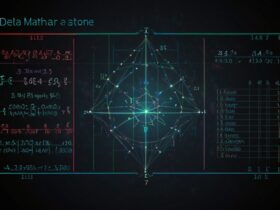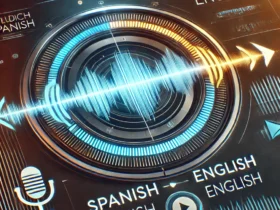Math Brain Teasers: Why They Matter
Apart from this, brain teasers, including math puzzles, add another dimension to the process of learning. They need logical reasoning skills, creative problem-solving abilities, and knowledge of math concepts. Solvithis kindind of puzzles can help in multiple ways:
Better Critical Thinking:
Math brain teasers usually give problems that need some out-of-box thinking. These puzzles help increase critical thinking and hone problem-solving skills by forcing the brain to learn how to look at a problem from different ways.
Improved Attention and Concentration: Puzzles require attention to detail and memorization to the concepts learned prior, which helps in improving working memory and attention span.
Enhanced Analytical Skills:
These puzzles train the brain to deconstruct problems into smaller parts, helping you get better analytical skills.
More Confidence in Math: Math brain teasers can also help people be more confident about their mathematics skills because they can overcome the fear of numbers that can usually block the way for many people to learn.
Types of Math Brain Teasers
There are plenty of math brain teasers out there, all designed to challenge different cognitive skills. Below are some popular types:
Number Puzzles
Well, these puzzles prompt people to think about numbers in unusual ways. Examples include:
ExamplesIn the area of puzzles and logic games, magic squares involve a matrix of numbers arranged in such a way that either horizontally, vertically or along diagonals, results in the same sum.
Number Sequences: Players need to figure out what the next number in a sequence is according to some rule.
Sudoku: This is more logic than math, but Sudoku puzzles require numerical reasoning and spatial understanding.
Word Problems
One great way to get practice is through word problems, which allow you to apply math skills to real-world situations. They almost always involve having the solver convert a verbal description into a mathematical equation. These puzzles can often assess a variety of skills, from basic arithmetic to algebra.
For example, if a car is going 60 miles an hour, how far will it go in 3 hours?
Algebraic Brain Teasers
Share algebraic brain teasers that reinforce skills in manipulating variables and solving equations. Such puzzles are often solved in a series of steps leading to a solution.
Example: Find x in the equation 5x + 3 = 18.
Geometry Puzzles
The Geometry Brainteaser deals with shapes, angles, and spatial reasoning. These puzzles are based on geometric principles to be solved.
For example, if a triangle has angles measuring 30° and 60°, how much does the third angle measure?
Logic Puzzles
Logic puzzles are a common feature of math brain teasers, and they rely on reasoning and deduction rather than calculation. These puzzles call on a person to solve a problem using logic.
For example, there are three people: Alice, Bob, and Charlie. Bob is to the right of Alice. Charlie: Bob is standing to my right. Who is the one standing in the middle?
Advantages of Math Brain Teasers
In addition to improving math skills, math brain teasers provide additional cognitive benefits:
Mental Exercise:
Brain teasers are to our brain what physical exercise is to our body. Repetition is the mother of retentio.n In training the brain, repetition is key.
Stress-free: A great way to relax after a hard day is solving a puzzle. The act of solving a devilishly difficult brain teaser is satisfying and can even help you de-stress.
Better Time Management:
Math puzzles have a time limit; they involve a lot of rapid decision-making. This allows people to develop their potential to think under pressure and adapt on the fly.
Boost Creativity:
Puzzles that demand creative solutions improve your creativity. As such, when it works the way you intend, and you are presented with a challenging problem, you have to get out of your comfort zone to arrive at clever solutions.
Enhanced Problem-Solving Skills: Math brain teasers require the use of multiple problem-solving strategies. Over time, this practice makes it easier for people to consider different angles when solving a problem.
Read Also: Math Brain Teasers Examples

Here are some examples of math brain teasers, so you can get an idea of what that looks like:
Classic Riddle:
In a room there are 3 persons. Each one has a hat. If they have red, they wear blue hats. They can see hats, but they can’t see their own. After a few moments of looking at each other’s hats, one of them speaks up and says, “I know what color my hat is.” How did they figure it out?
Solution: The trick is to realize the person who determines the color of their hat must see two of the same color on the others. If there were a red and a blue hat in view, they wouldn’t know the color of their hat.
The Missing Dollar Puzzle:
Three friends arrive at a hotel room, and it charges them $30. They each pay $10. Afterward, the hotel owner discovered that there was a special rate that night, and that room cost only $25. So the manager gives the bellboy $5 and tells him to return it to the guests. The bellboy, realizing he can’t evenly divide $5 by three, gives each friend $1 and keeps $2 for himself. Now, each friend paid $,s $ 27, and the bellboy has 2 , so $29. Where did the missing dollar go?
Answer: No dollar is missing. The puzzle fools you into adding the $2 of the bellboy to the $2.7 Instead, the $27 includes the $2 the bellboy got so that $25 for the room and $2 for the bellboy would still mean the total is $27. The extra dollar is no longer a straction.
How to Ask Your Questions (FAQ)
How Math Brain Teasers Benefit Students?
Math brain teasing puzzles boost problem-solving and logical thinking, two key skills needed for success in maths. They are fun, and can also be a break from conventional textbook problems.
Are math brain teasers just for those who love math?
No, math brain teasers are for anyone! Math may make these more attractive to people with an affinity for numbers, but anyone can benefit from the cognitive skills that the puzzles help build, like critical thinking, pattern recognition, and attention to detail.
What do you want to know about math brain teasers?
To think up math brain teasers, look for quirky, surprising mathematical patterns or puzzles that provoke guessed assumptions. It’s a fantastic way to work on your problem-solving skills by getting other people involved in some fun, challenging activities.
Does doing math brain teasers alleviate math anxiety?
Yes! Math brain teasers are a more approachable way to practice math. Because they are often framed as puzzles or games, they can alleviate the pressure that comes with more formal math problems, allowing people to feel relaxed in the presence of mathematical ideas.
View more math brain teasers on our math brain teasers page.
There are many online resources, books, and apps focused on math brain teasers. Websites like Brilliant. Org; Math Brain Teasers; and Puzzle Prime for a range of challenges at all skill levels.
Conclusion
Math brain teasers are not just fun challenges to solve—they are effective cognitive skills development tools. Solving these puzzles will help in sharpening their critical thinking, analytical, and mathematical skills, and make it enjoyable too. Whether you’re a student, a professional, or just a puzzle-lover at heart, math brain teasers can offer both fun and valuable mental exercise. So, why not spend a few minutes each day with a new math challenge to wake up your brain? It will thank you back!
















Got a Questions?
Find us on Socials or Contact us and we’ll get back to you as soon as possible.